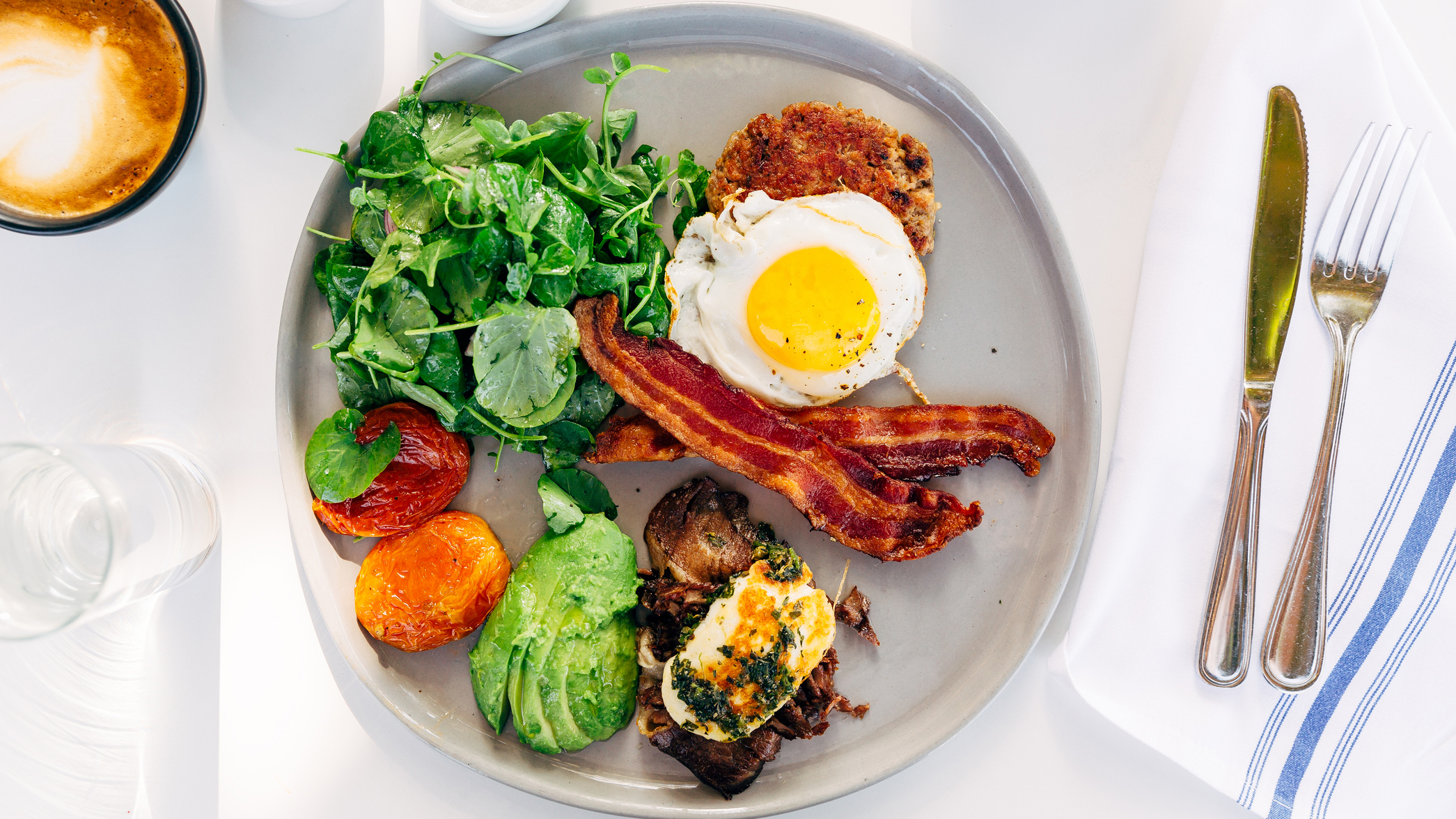What happens to your body when you go on the keto diet?
The keto diet is a popular, but very restrictive weight loss diet. What does it do to your body, and is it sustainable long-term?


The keto diet, or "ketogenic diet", is a meal plan that's low in carbohydrates, high and fats and high in protein. A very popular restrictive diet, it's said to be great for weight loss and building muscle. But what exactly is the ketogenic diet supposed to be doing to our body, in order to make this happen?
In a high-fat nutshell, the ketogenic diet relies on the idea that if we eat less carbohydrates, our body will end up burning fat for fuel instead. The state our body enters when this occurs is called "ketosis". The keto diet aims to induce ketosis by consuming as few sources of carbohydrates as possible, which means no bread, potatoes, rice, starchy products, beer or refined sugar.
Does it work? Potentially. Some studies have found ketogenic diets "can help patients lose about two kilos more than low-fat diets do" after one year of weight loss. However, it also says the weight loss peaks at about five months and is often not sustained in the long term once the studies have finished.
This is, in part, due to the strict nature of the diet. Restrictive diets that prohibit whole food groups often prove unsustainable from a lifestyle point of view. A lack of carbohydrates can often lead to lethargy, although anecdotal evidence often says your body "adapts" to living off fewer carbohydrates every day. In addition, really cutting out all carbs means ditching beneficial stuff including some fruit and vegetables, potentially depriving yourself of vital vitamins and minerals.
One review of studies reported by Harvard University looked at 22,000 overweight individuals on a variety of restrictive diets. It found "while low-carbohydrate and low-fat diets both resulted in weight loss of about 10 pounds at six months, most of the lost weight was regained within one year.
"The lost weight and other health benefits (such as improved cholesterol and reduced blood pressure) tend to disappear soon after the study ends."

So the ketogenic diet does work for weight loss due to the low-carb diet encouraging your body to enter a state of "ketosis". However, you have to do it sustainably and plan your meals carefully to ensure you don't miss out on any key nutrients.
Get the Fit&Well Newsletter
Start your week with achievable workout ideas, health tips and wellbeing advice in your inbox.
For example, make sure you're taking the right supplements and vitamins to maintain a complete picture of health, whether it's the best supplements for joints, the best vitamins for women over 50 or the best protein powder for weight loss, which are low in carbohydrates compared to the other carb-heavy protein products.
You can have your favourite proteins and veggies cooked healthier instead of pan-frying by opting for one of our best air fryers. Air fryers use a small amount of fat and superheated air currents to coat its contents evenly, ensuring all the great taste of your favourites with minimal added calories.
Matt Evans is an experienced health and fitness journalist and is currently Fitness and Wellbeing Editor at TechRadar, covering all things exercise and nutrition on Fit&Well's tech-focused sister site. Matt originally discovered exercise through martial arts: he holds a black belt in Karate and remains a keen runner, gym-goer, and infrequent yogi. His top fitness tip? Stretch.
-
 I do these two things every day to stay fit and healthy, says the newest star trainer on Chris Hemsworth's fitness app
I do these two things every day to stay fit and healthy, says the newest star trainer on Chris Hemsworth's fitness appHere's how Centr's Korey Rowe trains for longevity
By Sam Rider Published
-
 I thought sports weren't for me, until I realised they're a game-changer for ticking off cardio
I thought sports weren't for me, until I realised they're a game-changer for ticking off cardioI swapped HIIT and running for tennis—and I've never felt better
By Alice Porter Published